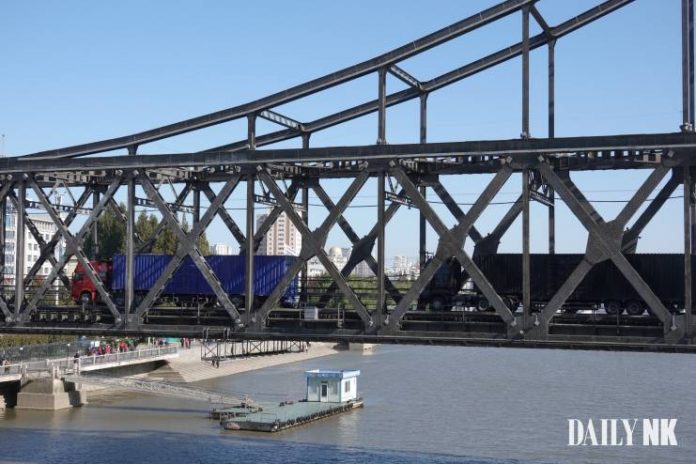
A recent order by the Ministry of External Economic Relations has sparked hope in North Korea that trade with China will restart sometime around September.
A source in North Hamgyong Province told Daily NK on Thursday that the Ministry of External Economic Relations issued an order to regional trade bureaus across the country in mid-July to make all necessary preparations because “trade is likely to restart from September.”
“Trading companies are perking up to news of the order,” he added.
China had been hesitant to restart trade with North Korea due to concerns about the North’s COVID-19 situation. However, the source — quoting a trade official in North Hamgyong Province — said the two sides agreed to restart bilateral trade from early September after observing North Korea’s COVID-19 situation during the month of August.
Still, some in North Korea speculate that the date to restart trade could be delayed once again, given that the agreement is predicated on “observing North Korea’s COVID-19 situation.”
North Korean trade bureaus will reportedly prioritize imports of rice and cooking oil should trade restart.
However, with the Chinese side raising the price of rice from RMB 4 to 4.5 (.59 to .67 cents) a kilogram and refusing to sell for anything less, the two sides are reportedly at loggerheads.
The source said North Korean trade officials and Chinese traders have yet to reach an agreement regarding the rice price hike.
“Our side [North Korea] is sticking to the existing price, while the Chinese side says it won’t sell for even a single cent less than the price they’ve quoted,” he said.
“If trade restarts, supplies of rice to markets will increase, but if we pay as the Chinese side demands, domestic food prices will have to increase by a commensurate amount,” he continued, adding, “If we import rice at high prices, it will impact existing market prices for rice, too, so we could see rice priced in the KPW 4,000 to KPW 5,000 range disappear from markets.”
Please direct any comments or questions about this article to dailynkenglish@uni-media.net.

















